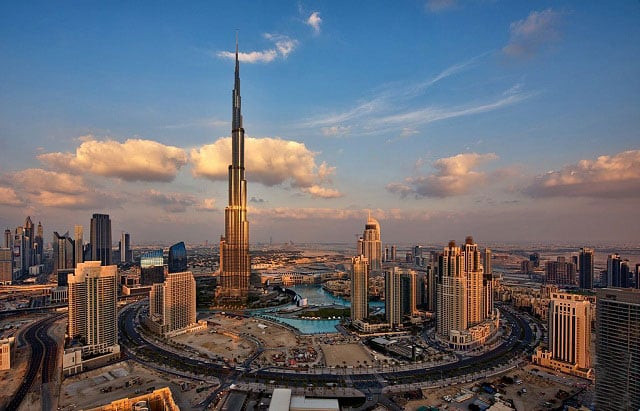Saudi Arabia, UAE prepare for taxes in 2018
The National newspaper states cost of living in the UAE will rise by 2.5 per cent next year

PHOTO: ARABIAN GAZETTE
The Value-Added Tax (VAT) will be charged on food, clothes, electronics and gasoline, phone, hotel reservations and electricity bills, and even water.
Dubai citizens are stocking up goods and shopping in advance before the taxes come into effect in 2018. Elda Ngombe, a college graduate, stated,"I am scared because everything is actually expensive already in Dubai. The fact that it's actually adding 5 per cent is crazy," she said.
UAE sentences thirteen to jail terms for terrorism, spying
High-expense items such as rent, real estate sales, certain medications, airline tickets and school tuition will be exempted. School-related costs such as uniforms, books, school bus fees and lunch however, will be subject to the tax. Higher education will also be taxed in the UAE. The taxed-items list also includes Real estate brokerage costs.
The national newspaper, based in Abu Dhabi, has calculated the cost of living in the UAE will rise by 2.5 per cent next year because of the VAT.
It is well understood that main part of the reason behind introduction of taxes is the fall in oil prices and International Monetary Fund (IMF) has recommended introduction of taxes. The government of UAE expects to raise around 12 billion dirhams ($3.3bn) from the tax which will serve as an alternative source of revenue.
UAE says "security info" delayed travel by Tunisian women
In accordance with IMF recommendations, Saudi Arabia and the UAE imposed a 100 per cent tax on tobacco products and energy drinks, and a 50 per cent tax on soft drinks this summer.
Meanwhile, Saudi Arabia, in its biggest budget in history, plans to spend $261bn this coming fiscal year as the government expects a surge in revenue from the introduction of VAT and plans to reduce subsidies. However, Saudi Arabia is expected to face a budget deficit until at least 2023.
Compared to the average VAT rate of 20 per cent in European countries, a 5 per cent tax rate is still low."If you compare with Europe, I don't think it's as expensive. Only in rent and food," said Vera Clement, a mother and assistant manager of restaurants from France who has lived in Dubai for three years.
"We are going to be more careful when we buy something," she added.
Other Gulf countries are expected to implement their own VAT scheme in the coming years.
How much these taxes change will affect influx of foreign workers, tourism and economic spending is yet to be seen.



















COMMENTS
Comments are moderated and generally will be posted if they are on-topic and not abusive.
For more information, please see our Comments FAQ